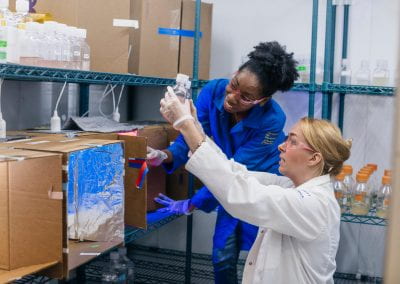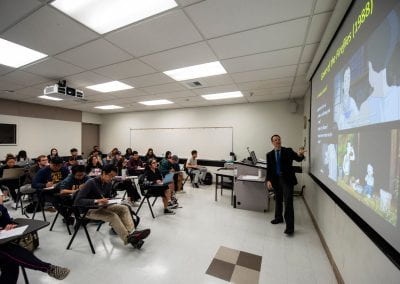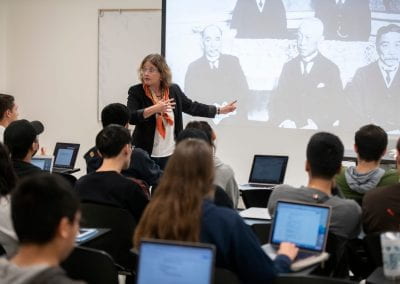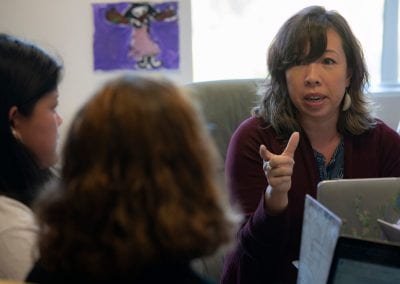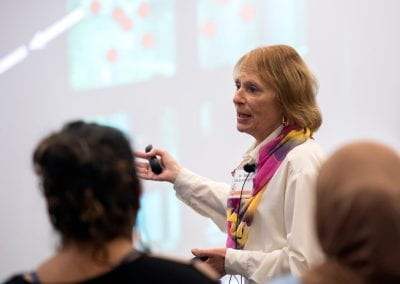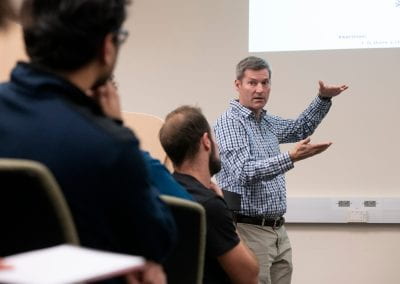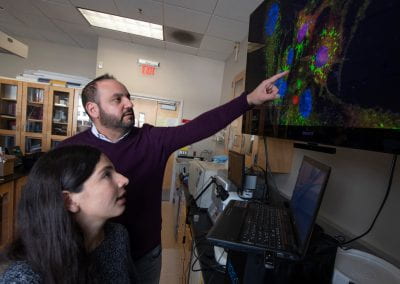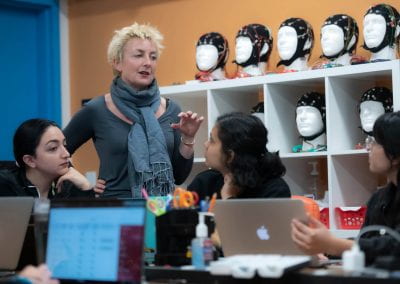
UCI Faculty Academy for Teaching Excellence (FATE)
The UCI Faculty Academy for Teaching Excellence (FATE) is a means for the campus to highlight the contributions of faculty that have a demonstrated record of creating learning environments that foster the growth of all students, have continued to develop their pedagogy by participating in professional development opportunities, and have been recognized by their peers as model educators. Through FATE, the Office of the Vice Provost of Teaching and Learning aims to create a community of individuals with a shared desire to promote student success. Membership is an honor bestowed on the FATE Fellows, who pledge to continue growing in their roles as educators and mentors.
We are now soliciting self-nominations for the second FATE cohort. If you are interested in applying and meet the criteria below, please complete the following form by February 26, 2024. This form will ask you for a 500-word (max) statement describing why you believe you should be part of the next FATE cohort. There are two rounds of review for selection of new FATE members. All nominations will receive an initial review and individuals who best meet the above criteria will be invited to apply to join the next FATE cohort.
- Be at the Associate or Full Professor level (for research, teaching, or clinical professors) OR have achieved Continuing Lecturer status (for Unit-18 lecturers)
- Have a demonstrated commitment to creating more evidence-based and/or inclusive learning environments (e.g. implementing active learning practices, flexible course design, or alternative assessment methods, etc.)
- Have had a demonstrated impact on the campus’ educational mission beyond their own classroom (e.g. influencing colleagues and their teaching, contributing to extracurricular instructional activities, pedagogical impact beyond UCI, etc.)
- Be available during the 2024-25 academic year to contribute to a FATE project
- 2022-23 Inaugural Class of FATE Fellows
- 2022-23 FATE Projects
2022-23 Inaugural Class of FATE Fellows
- Amal Alachkar (Pharmaceutical Sciences)
- Claudia Benavente (Pharmaceutical Sciences)
- Miriam Bender (Nursing)
- Jessica Borelli (Social Ecology)
- Kevin Bradford (Business)
- Leanne Burke (Nursing)
- Anita Casavantes Bradford (Social Sciences)
- Max Chao (Business)
- Bernard Choi (Engineering)
- Simon Cole (Social Ecology)
- Penelope Collins (Education)
- Phil Collins (Physical Sciences)
- Celia Faiola (Biological Sciences)
- Julie Ferguson (Physical Sciences)
- Mahtab Jafari (Pharmaceutical Sciences)
- Angela Jenks (Social Sciences)
- Pavan Kadandale (Biological Sciences)
- Susan King (Physical Sciences)
- Beth Lopour (Engineering)
- Catherine Loudon (Biological Sciences)
- Bob Pelayo (Physical Sciences)
- Brett Sanders (Engineering)
- Brian Sato (Biological Sciences)
- Kelli Sharp (Arts)
- Paul Spencer (Humanities)
- David Trend (Arts)
- Joel Veenstra (Arts)
- Mark Walter (Engineering)
- Adrienne Williams (Biological Sciences)
- Jennifer Wong-Ma (Information and Computer Sciences)
- Ted Wright (Social Sciences)
- Joanne Zinger (Social Ecology)
2022-23 FATE Projects and Project Reports
- Instructional Models for the 21st Century: As we face a new world of higher education, what are the various instructional team models (combinations of ladder-rank faculty, professors of teaching, unit-18 lecturers, graduate students, and learning assistants) that make sense to maximize student success, promote the incorporation of evidence-based pedagogies, and develop inclusive learning environments? How do these models differ by instructional modes (online, in-person, hybrid) and course types (introductory classes, labs, etc.)? How can the campus best support faculty so they can serve as leaders of these teams? This group will engage with these questions and develop policies and best practices to guide the campus moving forward. Download the final report here.
- Helping Faculty Construct Courses that Promote Inclusion and Well-being: This project has two primary objectives (1) To develop messaging to highlight the value in promoting inclusion and well-being while also maintaining high standards and rigor and (2) To construct policy recommendations and teaching materials that faculty and graduate students can leverage to better support inclusion and well-being in the classroom. Download the final report here.
- Alternative Assessment Strategies: Practical concerns brought up by recent events like the COVID-19 pandemic and research highlighting inequitable course outcomes produced by traditional assessment methods have made clear the need for assessment options beyond high-stakes exams and other competitive grading schemes. This group will identify alternative assessment strategies (e.g., group exams) or grading models (e.g., specifications grading) that the campus should recommend, along with viable strategies to encourage adoption. Download the final report here.

